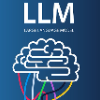The field of healthcare has increasingly turned its focus towards Large Language Models (LLMs) due to their remarkable performance. However, their performance in actual clinical applications has been underexplored. Traditional evaluations based on question-answering tasks don't fully capture the nuanced contexts. This gap highlights the need for more in-depth and practical assessments of LLMs in real-world healthcare settings. Objective: We sought to evaluate the performance of LLMs in the complex clinical context of adult critical care medicine using systematic and comprehensible analytic methods, including clinician annotation and adjudication. Methods: We investigated the performance of three general LLMs in understanding and processing real-world clinical notes. Concepts from 150 clinical notes were identified by MetaMap and then labeled by 9 clinicians. Each LLM's proficiency was evaluated by identifying the temporality and negation of these concepts using different prompts for an in-depth analysis. Results: GPT-4 showed overall superior performance compared to other LLMs. In contrast, both GPT-3.5 and text-davinci-003 exhibit enhanced performance when the appropriate prompting strategies are employed. The GPT family models have demonstrated considerable efficiency, evidenced by their cost-effectiveness and time-saving capabilities. Conclusion: A comprehensive qualitative performance evaluation framework for LLMs is developed and operationalized. This framework goes beyond singular performance aspects. With expert annotations, this methodology not only validates LLMs' capabilities in processing complex medical data but also establishes a benchmark for future LLM evaluations across specialized domains.
翻译:暂无翻译


